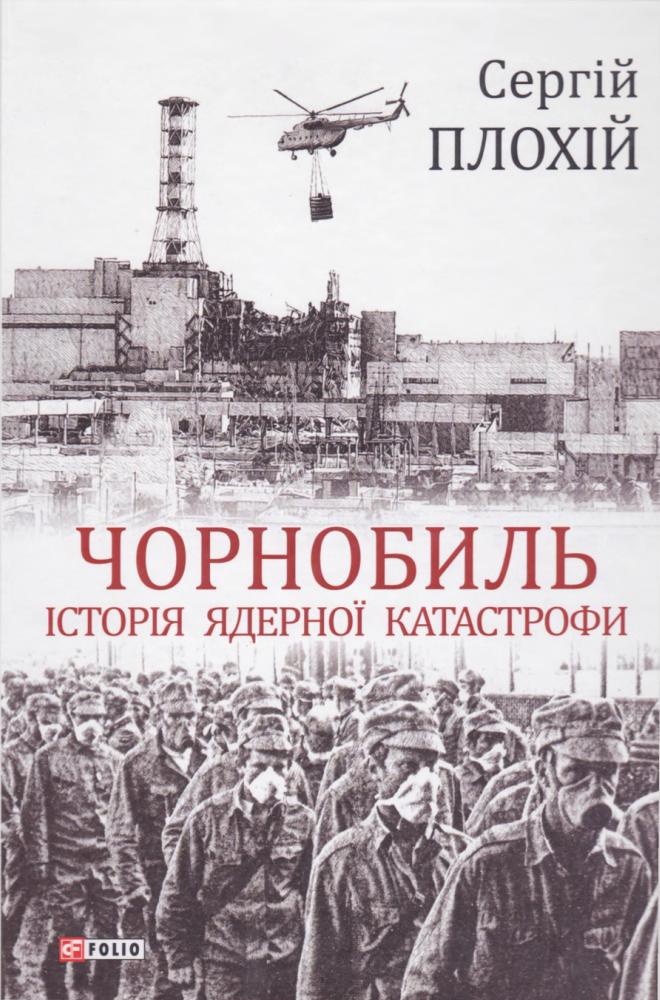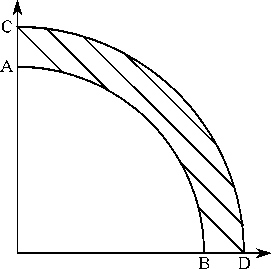Читати книгу - "Брама Європи. Історія України від скіфських воєн до незалежності"
Шрифт:
Інтервал:
Добавити в закладку:
James E. Mace, Communism and the Dilemmas of National Fiberation: National Communism in Soviet Ukraine, 1918–1933 (Cambridge, MA, 1983)
Paul Robert Magocsi, The Shaping of a National Identity: Subcarpathian Rus’, 1848–1948 (Cambridge, MA, 1978)
Terry Martin, The Affirmative Action Empire: Nations and Nationalism in the Soviet Union, 1923–1939 (Ithaca, NY, and London, 2001)
Alexander J. Motyl, The Turn to the Right: The Ideological Origins and Development of Ukrainian Nationalism, 1919–1929 (Boulder, CO, and New York, 1980)
Yohanan Petrovsky-Shtern, The Anti-Imperial Choice: The Making of the Ukrainian Jew (New Haven, CT, 2009)
Yohanan Petrovsky-Shtern, The Golden Age Shtetl: A New History of Jewish Fife in East Europe (Princeton, NJ, 2014)
Serhii Plokhy, Unmaking Imperial Russia: Mykhailo Hrushevsky and the Writing of Ukrainian History (Toronto, 2005)
Serhii Plokhy, Yalta: The Price of Peace (New York, 2010)
Anna Procyk, Russian Nationalism and Ukraine: The Nationality Policy of the Volunteer Army During the Civil War (Edmonton, 1995)
Thomas Prymak, Mykhailo Hrushevsky: The Politics of National Culture (Toronto, 1987)
George Y. Shevelov, The Ukrainian Language in the First Half of the Twentieth Century, 1900–1941: Its State and Status (Cambridge, MA, 1989)
Timothy Snyder, The Reconstruction of Nations: Poland, Ukraine, Lithuania, Belarus, 1569–1999 (New Haven, CT, 2003)
Timothy Snyder, Bloodlands: Europe Between Hitler and Stalin (New York, 2010)
Stephen Velychenko, State Building in Revolutionary Ukraine: A Comparative Study of Governments and Bureaucrats, 1917–1922 (Toronto, 2011)
Serhy Yekelchyk, Stalins Empire of Memory: Russian-Ukrainian Relations in the Soviet Historical Imagination (Toronto, 2004)
Serhy Yekelchyk, Stalins Citizens: Everyday Politics in the Wake of Total War (New York, 2014)
V. Шлях до незалежності
Anne Applebaum, Between East and West: Across the Borderlands of Europe (New York, 1994)
Omer Bartov, Erased: Vanishing Traces of Jewish Galicia in Present-Day Ukraine (Princeton, NJ, 2007)
Yaroslav Bilinsky, The Second Soviet Republic: The Ukraine After World War II (New Brunswick, NJ, 1964)
Marta Dyczok, The Grand Alliance and Ukrainian Refugees (New York, 2000)
Marta Dyczok, Ukraine: Movement Without Change, Change Without Movement (New York, 2000)
Andrea Graziosi, Lubomyr A. Hajda, and Halyna Hryn, eds., After the Holodomor: The Enduring Impact of the Great Famine on Ukraine (Cambridge, MA, 2013)
Bohdan Harasymiw, Post-Communist Ukraine (Edmonton and Toronto, 2002)
Askold Krushelnycky, An Orange Revolution: A Personal Journey Through Ukrainian History (London, 2006)
Taras Kuzio, Ukraine: State and Nation Building (London and New York, 1998)
Borys Lewytzkyj, Politics and Society in Soviet Ukraine, 1953–1980 (Edmonton, 1984)
Paul Robert Magocsi, This Blessed Land: Crimea and the Crimean Tatars (Toronto, 2014)
David Marples, The Social Impact of the Chernobyl Disaster (New York, 1988)
David Marples, Ukraine Under Perestroika (Edmonton, 1991)
David Marples, Stalinism in Ukraine in the 1940s (Edmonton, 1992)
David Marples, Heroes and Villains: Creating National History in Contemporary Ukraine (Budapest, 2007)
Kostiantyn P. Morozov, Above and Beyond: From Soviet General to Ukrainian State Builder (Cambridge, MA, 2001)
Alexander J. Motyl, Dilemmas of Independence: Ukraine After Totalitarianism (New York, 1993)
Olga Onuch, Mapping Mass Mobilization: Understanding Revolutionary Moments in Argentina and Ukraine (New York, 2014)
Serhii Plokhy, The Last Empire: The Final Days of the Soviet Union (New York, 2014)
William J. Risch, The Ukrainian West: Culture and the Fate of Empire in Soviet Lviv (Cambridge, MA, 2011)
Gwendolyn Sasse, The Crimea Question: Identity, Transition, and Conflict (Cambridge, MA, 2014)
Roman Szporluk, Russia, Ukraine, and the Breakup of the Soviet Union (Stanford, CA, 2000)
Catherine Wanner, Burden of Dreams: History and Identity in Post-Soviet Ukraine (University Park, PA, 1998)
Catherine Wanner, Communities of the Converted: Ukrainians and Global Evangelism (Ithaca, NY, and London, 2007)
Amir Weiner, Making Sense of War: The Second World War and the Fate of the Bolshevik Revolution (Princeton, NJ, 2001)
Andrew Wilson, Ukrainian Nationalism in the 1990s: A Minority Faith (Cambridge, 1997)
Andrew Wilson, Ukraine’s Orange Revolution (New Haven, CT, and London, 2005)
Kataryna Wolczuk, The Moulding of Ukraine: The Constitutional Politics of State Formation (Budapest, 2001)
Sergei Zhuk, Rock and Roll in the Rocket City: The West, Identity, and Ideology in Soviet Dniepropetrovsk, 1960–1985 (Washington, DC, Baltimore, and London, 2010)
Епілог. Перечитування історії
John-Paul Himka, “The History Behind the Regional Conflict in Ukraine,” Kritika 16, no. 1 (2015): 129–136
Volodymyr Kulyk, “Ukrainian Nationalism Since the Outbreak of EuroMaidan,” Ab Imperio, no. 3 (2014): 94–122
Edward Lucas, The New Cold War: Putins Russia and the Threat to the West (New York, 2014)
Alexander J. Motyl, Imperial Ends: The Decay, Collapse, and Revival of Empires (New York, 2001)
Richard Sakwa, Frontline Ukraine: Crisis in the Borderlands (London, 2014)
Andrew Wilson, Ukraine Crisis: What It Means for the West (New Haven, CT, and London, 2014)
Примітки
1
Довготривалий (фр.). Таку назву дістала методика історичних досліджень, запропонована представниками французької «школи анналів», що надавала перевагу дослідженню довготривалих історичних структур над подіями, тобто «короткої» історії. Представники цієї історичної школи намагалися відтворити «тотальну історію», що являла б собою опис усіх зв’язків, що існують у суспільстві, — соціальних, економічних, культурних тощо. (Тут і далі прим, пер., якщо не зазначено інше.)
2
Дослівно: «спосіб жити» — латинська фраза, що означає згоду сторін співіснувати з різними поглядами на певний об’єкт незгоди.
3
Друге «я» (лат.).
4
Книга пророка Єремії, 6:23 (переклад І. Огієнка).
5
Магістр армії (лат.).
6
Союзники (лат.).
7
Тут і далі цитати з «Повісті минулих літ» подано за виданням: Літопис руський / Пер. з давньорус. Л. Є. Махновця; Відпов. ред. О. В. Мишанич. — К.: Дніпро, 1989.
8
Літописна назва аварів.
9
Назва вікінгів на Русі.
10
Про управління імперією (лат.).
11
Монгольський світ (лат.) — термін, що використовується у європейській історіографії для позначення впливу монгольського завоювання на соціальне, культурне та економічне життя народів Євразії, завойованих Монгольською імперією у XIII столітті.
12
Переклад тексту з Острозької Біблії подається за виданням: Острозька Біблія. Опрацював та підготував до друку єрмн. архімандрит др. Рафаїл (Роман Торконяк). — Львів, 2006. — 1957 с.
13
Переклад Валерія Шевчука. За
Увага!
Сайт зберігає кукі вашого браузера. Ви зможете в будь-який момент зробити закладку та продовжити читання книги «Брама Європи. Історія України від скіфських воєн до незалежності», після закриття браузера.

